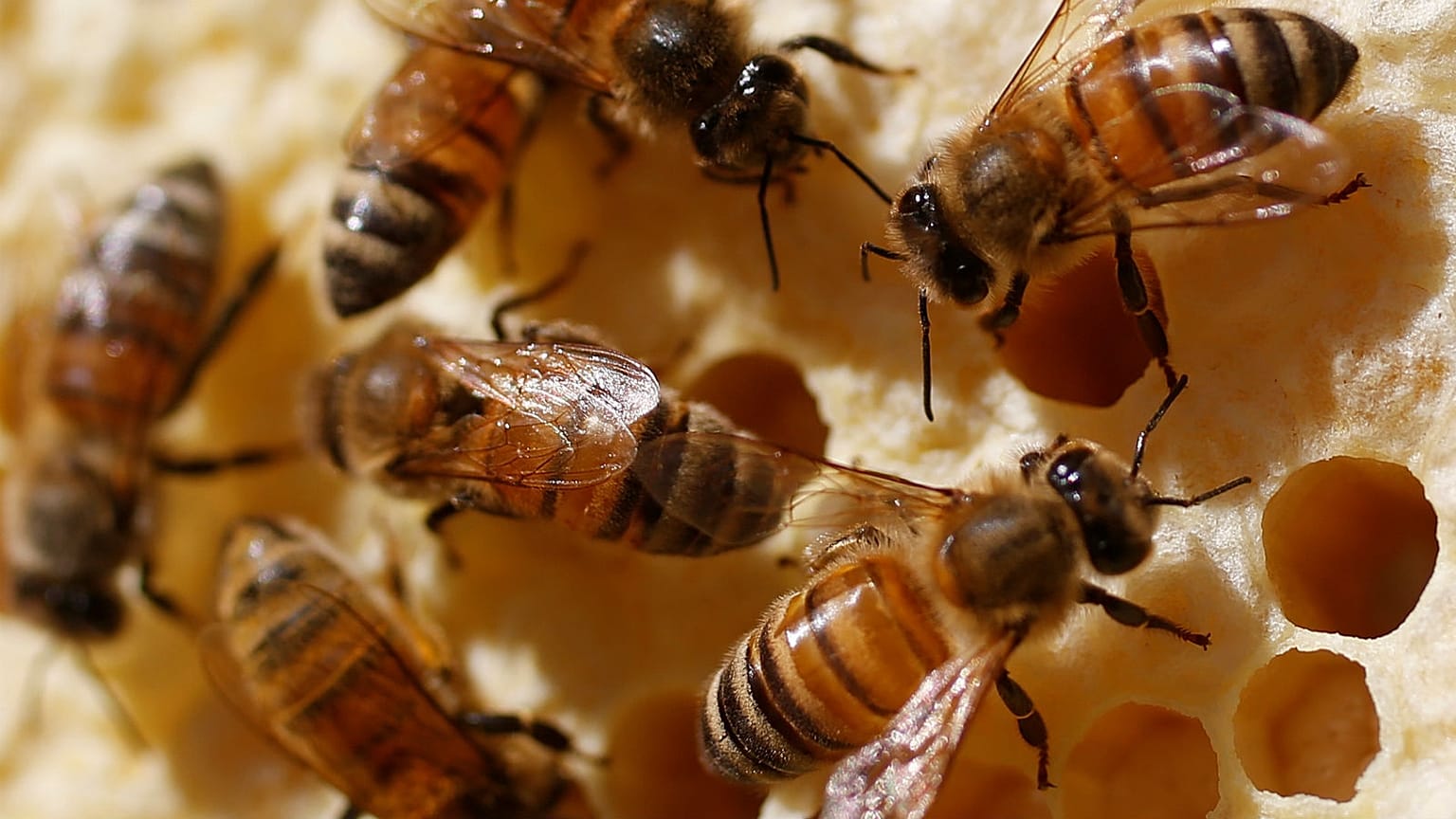Green campaigners have welcomed EU moves to ban the outdoor use of pesticides they claim are harmful to bees. But industry say it is a sad day for farmers.
 ADVERTISEMENT
ADVERTISEMENT
Green campaigners have welcomed EU moves to ban the outdoor use of pesticides they claim are harmful to bees.
A majority of European countries backed a Brussels proposal to prohibit the use of three neonicotinoids.
German pharmaceutical giant Bayer said the decision was “a sad day for farmers and a bad deal for Europe”.
The use of neonicotinoids in the EU has been restricted to certain crops since 2013.
But environmental groups have called for a total ban and sparked a debate across the continent about the wider use of chemicals in farming.
Critics argue the pesticides are poisonous to bees and damage the environment because it diminishes their role in pollinating other plants.
Bees and other pollinators are vital to the world’s food crops but their populations have been in decline in recent years.
Campaigners say pesticides are one reason for the drop but they are not the only factor: habitat loss, climate change and disease also play a part.
On Friday, EU countries backed a European Commission move to ban imidacloprid, developed by Bayer CropScience, clothianidin, developed by Takeda Chemical Industries and Bayer CropScience, as well as Syngenta's thiamethoxam.
Franziska Achterberg, Greenpeace’s EU food policy adviser, said: “This is great news for pollinators and our wider environment, but there was never any question that these three neonicotinoids had to go.
“Now the EU must make sure that they are not simply swapped with other harmful chemicals. These three neonicotinoids are just the tip of the iceberg – there are many more pesticides out there, including other neonicotinoids, that are just as dangerous for bees and food production.
“Governments must ban all bee-harming pesticides and finally shift away from toxic chemicals in farming.”
Both Bayer and Syngenta have challenged the 2013 partial ban at the European Court of Justice. A verdict is due on May 17.
Bayer said in a statement: “Today's decision by the EU Member States to restrict the use of certain neonicotinoids to applications in permanent greenhouses is a bad deal for the European agricultural sector and the environment, and one that will not improve the lot of bees or other pollinators.
“The decision will further reduce European farmers' ability to tackle important pests, for many of which there are no alternative treatments available.
“Bayer is surprised that, once again, legislative measures are being implemented without a prior thorough impact assessment.
“Beyond the costs for European farmers, the restrictions in place have already brought considerable unintended consequences: a lack of alternative solutions; more spray applications, leading to more CO2 emissions; an increased risk of resistant pest insects; and a return to older, less-effective chemicals.”
Greenpeace said France, Germany, Spain, Italy, the UK, the Netherlands, Austria, Sweden, Greece, Portugal, Ireland, Slovenia, Estonia, Cyprus, Luxembourg and Malta supported the ban.
Romania, the Czech Republic, Hungary and Denmark opposed the ban, while another eight countries abstained from the vote.













